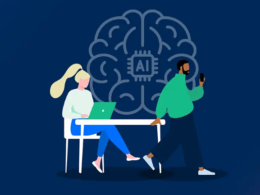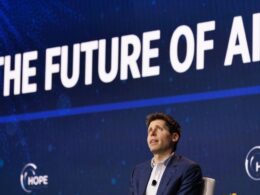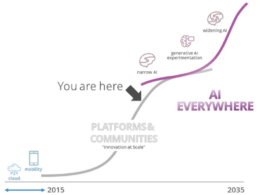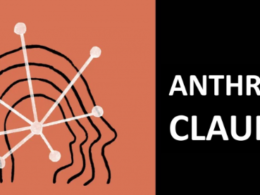the health strategist
institute for strategic health transformation
& digital technology
Joaquim Cardoso MSc.
Chief Research and Strategy Officer (CRSO),
Chief Editor and Senior Advisor
November 20, 2023
One page summary
What is the message?
In the year since its launch, OpenAI’s ChatGPT has revolutionized the AI landscape, transitioning from a fringe idea to mainstream adoption.
The generative AI tool’s explosive global popularity marks a significant inflection point in public AI adoption, with implications for various industries.
However, concerns about security, biases, and societal impacts have prompted calls for cautious and ethical development.

What are the key points?
AI’s Evolution and Landscape Shift:
ChatGPT’s release in November 2022 marked a turning point in AI, making machines proficient in conversing with humans. This development triggered a surge of interest and investment in generative AI and large language models (LLMs).
Generative AI in Practice:
LLMs, such as ChatGPT, are driving next-word predictions in natural language inputs. Despite their potential to transform industries, most enterprises are still experimenting, grappling with uncertainties around implementation, skills, risk management, and overall strategy.
Societal Concerns and Regulatory Response:
The advent of ChatGPT raised alarms about societal risks, prompting figures like Steve Wozniak and Kevin Scott to sign an open letter. Government responses, including the EU’s AI Act and President Biden’s executive orders, reflect the need for caution and regulation.
Job Impact and Market Trends:
Contrary to fears of job loss, generative AI is seen as a tool to enhance productivity, automate mundane tasks, and create new job opportunities. Job postings requiring genAI-related skills have surged, with companies like Meta and Amazon leading the charge.
AI Biases and Ethical Considerations:
Implicit biases in ChatGPT and similar tools have led to regulatory responses, such as New York City’s Bias Audit Law. Concerns about AI ingesting copyrighted material and the need for watermarking code to ensure human oversight have emerged.
AI’s Impact on Software Development:
ChatGPT’s unexpected role in software development, exemplified by GitHub Copilot, has accelerated coding processes. However, calls for transparency and human oversight in code generation underscore the need for responsible AI practices.
Statistics
- Job postings demanding genAI-related skills soared 1,848% in 2023.
- In 2022, there were 519 job postings for generative AI knowledge; in 2023, there were 10,113 genAI-centric postings and over 385,000 postings for all forms of AI roles.
Examples
- GitHub Copilot, powered by ChatGPT, enables developers to code up to 55% faster, with an anticipated increase to 80% within the next five years.
- New York City’s Bias Audit Law requires hiring organizations to inform job applicants about the use of AI algorithms and undergo third-party audits to check for bias.
Conclusion
OpenAI’s ChatGPT has undeniably reshaped the AI landscape in just one year, demonstrating both immense potential and persistent challenges.
As generative AI becomes more integral, responsible development, regulatory frameworks, and ethical considerations will be crucial to ensuring a positive and sustainable impact on society.
The coming years will likely see continued evolution and maturation of generative AI, demanding careful attention to issues of bias, privacy, and human oversight.
Infographic



DEEP DIVE

This summary was written based on the article “OpenAI’s ChatGPT turns one year old; what it did (and didn’t do)”, published by Computer World and written by Lucas Mearian, on November 15, 2o23.
To read the original publication, click here.











